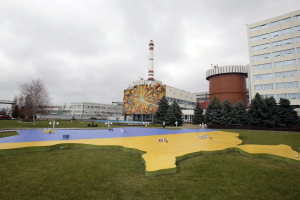Executive Summary
1. The introduction of the free circulation (sale/purchase) of agricultural land is being carried out under conditions when serious issues that have caused anxiety in small landowners (2-6 hectares) and small farmers (up to 500 hectares) for a long time, remain unresolved.
In particular, land share owners in the majority of regions complained of the following:
- Opaque and unclear nature of distributing land plots in kind and confusion on the demarcation of the land plots;
- Unfair lease agreements and weak protection of their property rights;
- Abuse of power by the government officials and their collusion with the large agricultural private holdings;
- Deteriorating environmental situation in the rural areas;
- Degradation of the rural communities as a consequence of the domination of large agricultural holdings and subsequent displacement of small farming enterprises.
Small land owners trust only to small farmers and see them as honest land users and tenants. At the same time, a majority would rather earn more money from leasing their land regardless of who the lessee is.
Focus groups conducted independently from one another in 15 regions found that small landowners and lessees don’t expect positive economic outcomes from the newly created land market. Members of these two groups don’t see a way to improve their well-being or develop their business. As a result, among citizens – small land – as owners of the largest share of agricultural land in the country, a negative attitude prevails toward the land market opening up, and expectations regarding its outcome is mostly pessimistically restrained.
Land market participants expressed misgivings that after the reforms, the new landowners will use their own labor force and equipment, thus depriving local residents of work and earnings.
In this situation, government support for small farms to purchase land will receive broad support in rural communities and promote trust building among land share owners toward the market turnover of land.
Particularly, small landowners expect the following from the government:
Create a state land bank through which small farmers could either buy or lease land.
Introduce preferential accessible (soft) loans and support programs for certain farming sectors (livestock raising, vegetable growing, viniculture, fruit growing, and beekeeping).
Support product sales and market access and provide small farms with access to local procurement orders from educational and medical institutions.
Provision of government insurance to small farmers during bad harvest years and in cases of natural calamities.
Targeted training of small farmers in effective planning and in running a business.
Proper training of local officials (tax authorities, centers for the provision of administrative services) in working with small farmers / family-owned enterprises.
2. People practically did not express any radical views and did not foresee events that would propel them to actively protest. At the same time, in case of despair, people will not protest and instead will immediately commit acts of violence against the perpetrators.
Taking this into consideration, the government should in the near future (in the next 6-8 months) ensure:
Verify the origin of funds that are invested in land sale and purchase agreements;
Protect land share owners from the illegal (criminal pressure or fraud) influence of individuals who are interested in purchasing land;
Transparent settlement of issues related to the demarcation and allocation of land shares, and simplified registration of land ownership rights for small landowners.
In addition, government should constantly monitor large landowners regarding their obligations on environmental management and preserving land fertility; priority employment of the local population; requisite payment of taxes to local budgets.
In order to avoid evoking radical tempers in rural communities, it is necessary to pay attention to the minimum requirement of residents – small landowners.
Bring order to the land cadaster and in assessing land fertility.
Introduce preferential accessible loans and support programs for certain farming segments (livestock raising, vegetable growing, viniculture, horticulture, and beekeeping).
Provide legal assistance to rural residents explaining to them their landownership rights on the newly created land market.
3. The negative attitude toward having foreign capital used in the sale/purchase of land stems from a high distrust toward government and the perception that politicians are corruptible. Since rural residents often are confronted with the violation of rights by large agricultural holdings and officials, this experience manifests into having negative expectations of foreign companies.
To regain the trust of rural residents/small land owners toward the government, a level playing field must be introduced to which all market players would adhere, and this in turn would guarantee social stability in rural areas and ensure support for the free circulation of land, including with the participation of foreign investment.
To achieve this goal, the government, presidential office and parliament should unite their efforts and implement the following solutions:
Establish a legal instrument for terminating inequitable lease agreements and invalidating those that were concluded with abuse of trust of land share owners.
Create and simple and accessible instrument for rural residents to turn to law enforcement agencies for protection against violence from tenants and individuals wishing to purchase land.
Establish state supervision over new large landowners regarding their obligations to invest in the preservation of land fertility, its restoration after intensive management, and compliance with crop rotation procedures.
Implement governmental control over and the imposition of economic sanctions on agricultural holdings for any excessive use of chemicals, poisoning of soils, groundwater and bodies of water bodies with chemical waste from agricultural production and processing.
4. The exacerbation of problems related to running a farming business in connection with climate change requires active state intervention and support for small and medium-sized producers working to meet domestic demand.
This support should be provided to farming business involved in vegetable growing, livestock raising, fruit growing, and whose production is geared toward the domestic market. Preservation of commonly-used lands and protection of community interests from abuse by officials will be important for adaptation. Thus, the support of small farms would meet the interests of the state to ensure food security in the country and reduce overall social tensions.
5. An analysis of the in-depth interviews conducted with experts on land relation issues and with regard to running a farming business allows us to identify such problems that create risks in terms of having a free land market.
Obstacles for selling farming produce by small farmers on the domestic market.
Problems of economically sound and transparent land valuation.
Small farming businesses lacking professional skills in running a business.
Opaque and corrupt procedures regarding the provision of subsidies and certain benefits to farmers.
Experts suggest the following steps to gradually eliminate these problems:
1. Create an agricultural broker’s board (exchange) and amend legislation on the regulation of the sale of agricultural products through stock exchanges, including through the use of futures contracts.
2. Devise a targeted program on developing transportation infrastructure in rural areas: ensure weight control of transport, develop roads designated as local, develop the port and rail sectors, and develop grain elevators and granaries. Implement short-term (up to 5 years) relaxation of taxes when private money is used for infrastructure building projects.
3. Align the regulatory assessment for all categories of land to stop large agricultural holdings from understating the amount of leases they pay.
4. Introduce free educational courses for small and medium-sized farmers, as well as for landowners who wish to open their own business, which allow them to acquire basic legal/accounting knowledge. It is possible to introduce a grants program from ministries to implement such educational activities.
5. Streamline an informational campaign to explain to farmers the conditions and procedure for receiving state subsidies and benefits, including equipment leasing, and to simplify (digitize) the instruments of state financial support for the agricultural industry.
Main Section
Section 1. Problems of small landowners and lessees of agricultural land
Findings from a nationwide survey conducted in May 2021 a month before the agricultural land market opened substantiate data from a qualitative survey conducted in 15 regions of Ukraine in December 2020-February 2021.
In particular, the number of respondents – small landowners – who said they will not do anything after the market opens increased to 61%. The number of people who said they do not know what to do in the new conditions also increased (to 17%). Thus, incertitude among land owners is increasing regarding the near future.
The list of problems that worry small landowners on a daily basis and remain relevant after the opening of the land market include: large land tenants oppressing the rights of land share owners, and large agricultural holdings disregarding standards of safe and environmentally-friendly land management.
Large agricultural holdings usually are the abusers among tenants.
Most often rural residents who own land shares complain about large agricultural holdings imposing their terms in lease agreements:
Long-term lease agreements as well as fixed and often lower rental rates for land regardless of the harvest quality (Chernihiv, Luhansk regions);
Delay in payment amid a worse crop yield (Odesa, Luhansk regions);
Prevention of land cultivation if the owners decide to change the lessee/tenant or start a family farm (Zaporizhzhya, Zhytomyr, Lviv regions);
Forced payment in goods at inflated prices instead of with money (Luhansk, Rivne, Poltava regions);
Conspiracy between agricultural holdings with community leaders to impose unfavorable lease conditions on land owners who are retired (Poltava region).
Moreover, rural residents are convinced that large land tenants, and over time, the future landowners do not care about the welfare of Ukrainians. In contrast, small tenants and farmers were rated by the majority of focus group participants mostly well. Respondents often recollected the ability to turn to them during difficult life situations or problems in the community. The opinion was widespread that it is small farmers who pay the most taxes whereas the big farming enterprises avoid paying them.
Rural residents acknowledge not having enough legal knowledge or access to legal consultations (Odesa, Kherson, Mykolayiv, Lviv regions).
As a consequence, hidden anger prevails among small land share owners since they are aware of their powerlessness and disenfranchisement. Thus, in their environment, a mainly negative attitude prevails toward the opening of the agricultural land market, and they have a tendency to see it only having negative consequences.
Conversely, those land owners who have had positive relations with tenants of land shares usually either have a neutral or neutral-positive attitude toward the opening of the land market.
Thus, presumably, a conflict-free transition of land from small owners and tenants to new owners who are able to increase labor productivity is crucial for the successful functioning of the land market.
For this to happen, the government must demonstrate its readiness to protect the economic interests of small landowners via-vis their relations with different tenants, to regulate competition between different tenants who farm in one area (a community, district or region).
During the focus group discussions, the following proposals aimed at protecting the interests of local communities and small landowners were offered for when the land market opens:
1. In particular, in a number of regions, rural residents and representatives of local communities raised the issue of amending the Land Code, which would allow for the exchange of land plots (shares) so that people could freely dispose of their land and gain the right to run their own small farming business.
2. Also, small landowners would like to see the state as the main purchaser of the land shares. For example, through the State Land Bank, which would ensure a fair assessment and price for the land purchase. The state would in this case be able to give this land for long-term use to local farming businesses that have connections to a given area and cares for the interests in that area. Such support, tt was emphasized, should be provided to farms engaged in vegetable growing, livestock raising, and fruit growing – that is, producing affordable products for the domestic market. Thus, support for small farms would be in the interests of the state to ensure food security and reduce overall social tensions.
Environmental deterioration and the negative impact of climate change.
The next important problem for small landowners is the negative impact that large farms (agricultural holdings) have on environmental changes that affect the efficiency of running a business and which creates risks for premature development.
Rural residents in the central, western and eastern regions complained of the unchecked use of pesticides by large tenants – agricultural holdings and farmers. If the land is bought, people anticipate that the use of these land inputs (products) will sharply increase and will harm the land, product safety, the health of people living nearby and small farms such as beekeepers. Such premonitions were expressed in the Donetsk, Chernihiv, Zhytomyr, Odesa and Rivne regions.
In the southern regions, namely, Odesa and Kherson, as well as in the southwest (Bukovyna area), farmers indicated that rising summer temperatures and droughts in the past 4-5 years have led to significant losses. In addition, the government has no measures in place to support or protect from risks associated with climate change.
The negative spillover caused by climate change is already felt in everyday life, in particular:
In Chernihiv region, rural resident complained of water drying up in wells and of the new land owner burying hazardous waste on land purchased from the community;
In Donetsk region, people complained on diseases and ill health from living near chemically-treated fields.
Accordingly, rural resident hope that the state will resolve the following issues at the legislative level:
1. Establish an instrument for monitoring the compliance of new large landowners with obligations to invest in maintaining the fertility of land, their restoration after intensive farming, and compliance crop rotation procedures.
2. There is also a great demand in rural areas for strict state control and the levying of severe fines on agricultural holdings for excessive use of chemicals, poisoning of soils, groundwater and bodies of bodies with chemical waste from agricultural production and processing.
3. To systematically conduct an analysis of the impact climate change and weather conditions have on the profitability and sustainability of the economy, focused on meeting the needs of the domestic market. And initiate long-term support for small farming businesses in view of the expected effect of climate change in Ukraine.
Section 2. Opinion of landowners about government support measures
Citing data from a nationwide poll conducted in May 2021, it is possible to identify possible public policy measures that have received the most support among landowners.
A third (31%-34%) of land share owners believe that the state should “protect land share owners from threats by individuals who want to purchase or seize land”.
It is important to note that the focus group discussions in all the region did show that people are afraid of specific law breakers. However, the respondents expressed concern that the "new rules" for the circulation of the land market were written for the benefit of "oligarchs," "people with money" or "connected people," who would use them and force the rural residents to sell the land at an absurdly low price.
A significant portion of land share owners, in particular 17% among those who have land, but have not yet registered it properly, and 14% who have a registered land share, require that the government “ensure transparent regulation of property issues and boundaries of land plots and land shares.”
The issue of land demarcation, self-seizure of state lands via collusion between representatives of government institutions (State Geocadaster) and large tenants was raised during the focus group discussion in Lviv and Odesa regions. In the regions of Mykolayiv, Zhytomyr and Rivne, respondents pointed out that many of them do not know how much land they actually have and to what extent.
Rural residents in the western and central regions complained that much state and communal land had previously been distributed for use without proper registration and demarcation. Thus, if this category of land is sold, there is a fear that the new landowner will also receive the land shares belonging to rural residents (Poltava, Zhytomyr, Rivne regions).
The fear of losing land is especially keenly felt by retired people who always live in a village. For many of them (Dnipro and Poltava regions), their land is an important source of supplemental income combined with their pensions.
Therefore, it is extremely important to provide a simple and accessible instrument to rural residents for them to turn to law enforcement agencies in order to protect them against violence prior to introducing permits for the purchase/sale of large tracts of land. This instrument should include a high level of protection for such witnesses and the investigation of such appeals by law enforcement officers who do not work/live in the same district or even region.
Close to 20% of among different groups of landowners, as well as 17% of those polled, who do not own land, believe that the state should “protect from the sale of common lands that are important to local communities.” For example, in the Zhytomyr and Lviv regions, respondents indicated that after the sale of land, they will be deprived of access to pastures, and respectively, will not be able to ensure dairy products for themselves and sell them.
Section 3. Assessment of the policy of opening the land market
During the focus group discussion, the two most widespread points of view on the opening of the land market and anticipated outcome of reforms were identified:
1. The land reform will be a repeat of the unsuccessful and unfair mass privatizations of state assets in the 1990s (Luhansk, Lviv, Chernihiv, Donetsk, Kherson and Odesa regions).
2. The land reform will facilitate the arrival of efficient owners who will be interested in establishing clear legal regulation and market value of land (Chernihiv, Chernivtsi, and Luhansk regions).
However, in general, the focus group discussions found that most rural residents know almost nothing about the essence of the reform and the main provisions of the law on amendments to some legislative acts of Ukraine on the circulation of agricultural land.
In particular, a majority of rural residents could not say what will be more advantageous – sell land or continue leasing it and how its market value is formulated. Thus, it can be assumed that the lack of transparent and clear criteria for land valuation will lead to increased resistance of small landowners to sell it.
At the same time, during the discussion proposals were expressed regarding government actions, which should accompany and even forestall the full opening of the land market.
Listed below are the common demands of rural residents for land reform, which were expressed in different regions, independently of one another:
1. Set a fair (minimum) price for land.
2. Bring order to the land cadaster and for assessing the fertility of land.
3. Digitize services related to the functioning of the land market. In particular, the creation of a digital land bank with the ability to obtain all legal documents in electronic format.
4. Create a state land bank through which land could be bought or leased by small farming businesses.
5. Carry out mandatory inspections of the legal origin of funds and investments involved in the purchase of land.
6. Introduce soft loans and support programs for certain agricultural sectors (livestock raising, vegetable growing, viniculture, fruit growing and beekeeping).
7. Support the same of products and market access, and provide small farmers access to public procurement of products ordered by local educational and medical institutions.
8. State insurance for small farmers during bad harvest years and in case of natural calamities.
9. Targeted education for small farmers on effective planning and business management.
10. Proper training of local officials (tax authorities, centers for the provision of administrative services) in working with small farmers / family-owned enterprises.
11. Provide legal assistance to rural residents explaining to them their landownership rights on the newly created land market.
12. Clarification of legislation, elimination of norms that provide discretionary powers to local authorities in relations with small landowners (issues of rent, sale of land, environmental requirements).
In our opinion, if this list of measures is consistently implemented, it is possible to achieve not only more support for the land market by the current owners and more active participation of rural residents in market relations, but also create long-term conditions for attracting investment in the Ukrainian agricultural sector and food security of Ukraine.
In May 2021, the Ilko Kucheriv Democratic Initiatives Foundation tested in a nationwide public opinion poll the public support for public policy proposals that were formulated during focus groups. In addition to that, were able to identify the measures that enjoy the most support among respondents who either own land shares or land plots.
Thus, based on the survey data, the following proposals to government are most supported by small landowners:
30% among polled land share owners support the demand for government to “protect land share owners from threats by individuals who either want to buy or seize land”;
22% among polled land share owners in favor “of providing interest-free loans to small independent producers and farmers to purchase land and equipment”;
20% of polled land share owners are in favor of “protecting against the sale of common land that is important to local communities”;
20% of polled land share owners demand “to set strict requirements for the preservation and restoration of land fertility for large owners and tenants”;
19% of surveyed land share owners insist on “establishing strict monitoring over compliance with environmental production standards by new landowners”.
Thus, survey findings confirm the observations made in different regions during the focus groups, which affirm that land share owners are worried about the absence / weak leak instruments for monitoring the actions agricultural holdings and government bodies who will approve decision on the privatization of government land.
When selecting the proposals offered in the focus groups on the level of national support, the list of areas of public policy to support land reform looks like this:
Bring order to the land cadaster and for assessing the fertility of land.
Introduce soft loans and support programs in certain agricultural sectors (livestock raising, vegetable growing, fruit growing, and beekeeping).
Provide legal assistance to rural residents explaining to them their landownership rights on the newly created land market.
These are the minimum demands of rural resident. Their implementation will not lead to the rapid development of a free land market, but will help to avoid a social explosion and confrontation between small and large landowners.
The participation of foreign capital in the acquisition of land should be considered separately. On the one hand, most focus group participants in various regions expressed fear that foreigners would purchase land and impose their conditions on the people and the state as a whole. However, rural residents often linked their fear of foreigners to the state's inability to defend its national interests and the corruptibility of politicians, which would create favorable conditions for foreign capital.
That is, the main caution expressed by citizens regarding letting foreigners enter the land market is distrust of the state and belief in the corruptibility of higher government bodies. If this factor is eliminated, we can predict a pivotal change in the disposition of most landowners.
This view is confirmed by an alternative view of the role of foreigners in the land market: their arrival is associated with higher efficiency and the latest farming technologies.
Thus, in order to reduce tensions in rural areas and create conditions for major foreign investment in Ukrainian land, the government and parliament need to resort to legislative approval of mandatory requirements for foreign investors who wish to purchase land for farming:
To recruit employees from local communities where agricultural holdings have a presence;
To create processing enterprises to make products with higher costs and salaries, which would provide additional incentives for the economic development of the surrounding communities.








